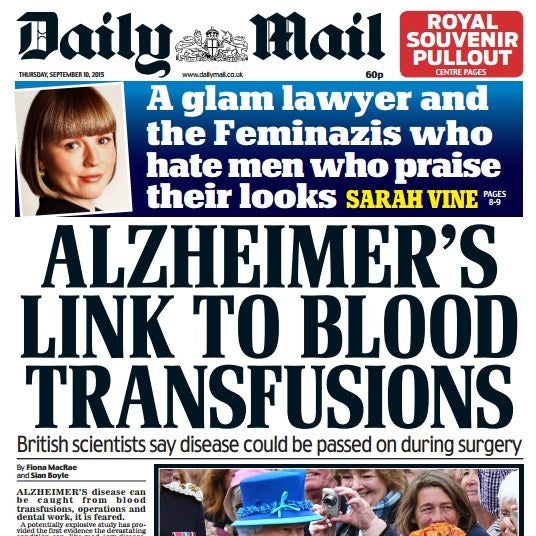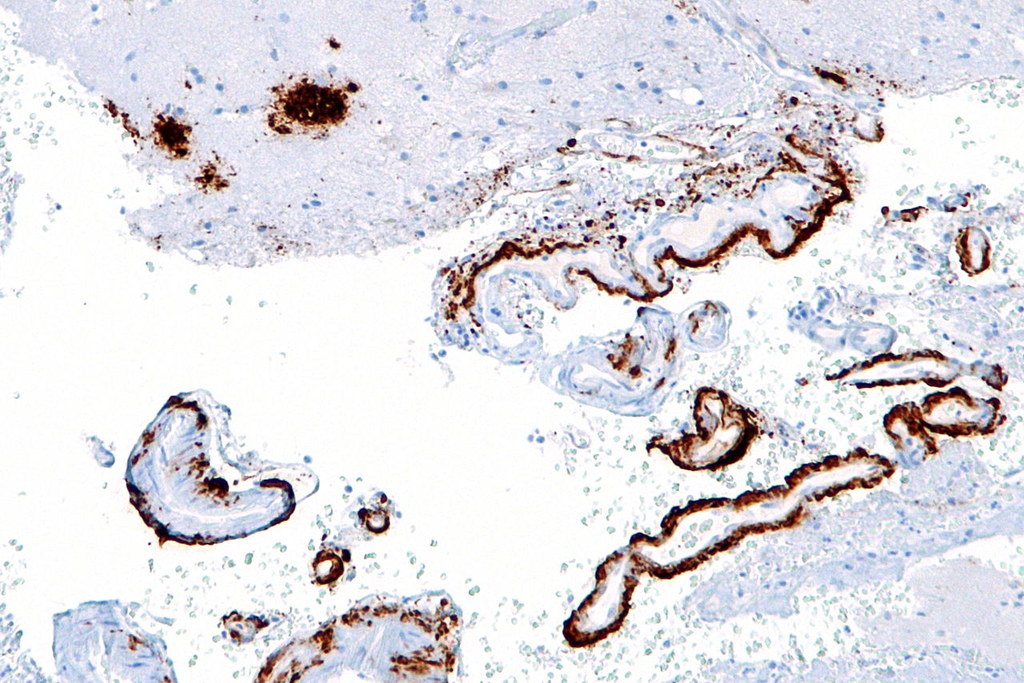Many media outlets are currently reporting that Alzheimer's disease is "infectious".


The reports follow a paper published in the journal Nature yesterday that detailed a study which followed eight people who received now-discontinued growth hormone injections as children. The growth hormone was made using parts of the brains of people who had died. Out of the eight people given the hormone treatment, four had changes in their brains similar to those seen in people with Alzheimer's. None of the eight people in the study were actually shown to have Alzheimer's.
But the Alzheimer's Society have pushed back against the reports. Dr Doug Brown, director of research at Alzheimer’s Society, said in a statement:
While these findings are interesting and warrant further investigation, there are too many unknowns in this small, observational study of eight brains to draw any conclusions about whether Alzheimer's disease can be transmitted this way.
Notably, while seven of the eight brains studied had beta-amyloid deposits – a protein found in the brains of people with Alzheimer's disease – the presence of this alone does not mean that they would have gone on to develop the disease.
Injections of growth hormone taken from human brains were stopped in the 1980s. There remains absolutely no evidence that Alzheimer's disease is contagious or can be transmitted from person to person via any current medical or dental procedures.
Let's break down why the study does not back up the wide-ranging claims seen in headlines.
1. The study followed just eight people.

2. The medical procedure those eight people had was discontinued in 1985.
All eight people in the study died of Creutzfeldt-Jakob Disease (CJD) contracted from growth hormone treatment they had as children. According to the Alzheimer's Society:
The injection was of a hormone called human growth hormone and was given to people with short stature between 1958 and 1985. The hormone was made using parts of the brain from people who had previously died.
The use of the hormone was discontinued in 1985 when it was linked to the development of CJD in some people who had received it.
If you did not undergo that procedure, this study does not relate to you.
3. The eight people in the study only had one hallmark of Alzheimer's.

4. None of the eight people actually had Alzheimer's disease.
There was no record of any study participants showing symptoms of the disease. This could be because they were relatively young when they died and did not have time to develop Alzheimer's symptoms.
But either way, the beta-amyloid plaques alone do not mean that they would have definitely gone on to develop the disease (amyloid clumps occur with natural aging, too).
5. The study didn't look at current medical or dental procedures.
Reports that dental procedures could pass on the disease come from comments made by lead investigator Professor John Collinge during a press briefing.
However, Collinge later clarified those comments, saying:
"It is possible our findings might be relevant to some other medical or surgical procedures, but evaluating what risk, if any, there might be requires much further research. Our current data have no bearing on dental surgery and certainly do not argue that dentistry poses a risk of Alzheimer's disease."
